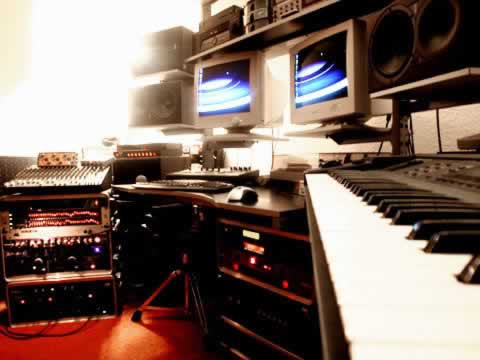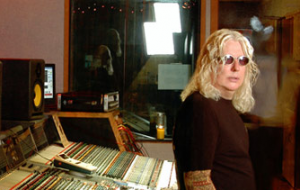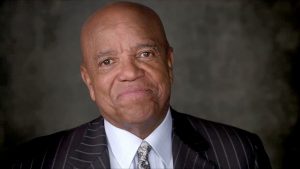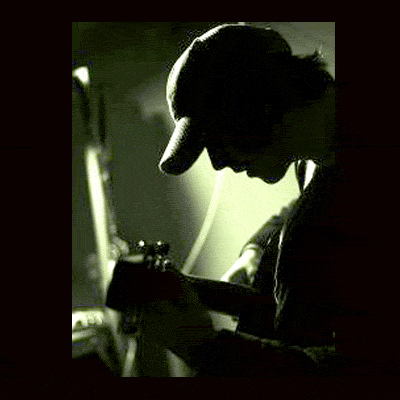 Many people don’t understand the importance a Producer plays in making a record. One big reason why is because most Artist, especially new and aspiring ones, don’t know what a Producer does, let alone how they help guide an artist to make the best record possible. So let’s dive into what a Producer is, what a Producer does, and points to remember when hiring a Producer.
Many people don’t understand the importance a Producer plays in making a record. One big reason why is because most Artist, especially new and aspiring ones, don’t know what a Producer does, let alone how they help guide an artist to make the best record possible. So let’s dive into what a Producer is, what a Producer does, and points to remember when hiring a Producer.
One of the most common responses you here when asked what a producer does, is They’re like the Director of a movie. While this is somewhat true, I find the problem with this explanation is most people don’t really know what a Director does, so it fails as a good point of reference. So what does a Producer do? Put in it’s most simplistic form, a Producer gets paid for his opinion….. Yup…..That’s it. A Producer gets paid to tell the artist/label whether or not he thinks a song is good or bad, and if producing an entire album, if that’s good or bad. Hard to believe? Well it’s the truth. HOWEVER, it does go deeper than just that. I mean, every time a play a record for one of my friends, they tell me if it’s good or bad for free!!!!! So why pay a producer for the same thing? Well, first of all, the Producer is responsible for much more than just telling you whether a record is good or not. Having a simple opinion isn’t enough to earn a paycheck. If they think the record isn’t right, it is the Producers job to MAKE it good. How? Good question. Let’s take a look.
A Producer should be a recording studio specialist! He may not be able to play a single instrument, work a single knob on a mix board (or click a single menu on a computer screen these days!!!!), or write a single piece of music. BUT he will know some very talented people who do. The good Producer knows how every bit of the recording process works, from finding the right song to record in the first place, down to how the final mix should sound. He understands how people (NOT artist, regular consumers) listen and hear music. And most importantly, he will know how to pull the best elements out of your song.

A good producer won’t just say “That guitar riff isn’t right, fix it…”, he’d say “That guitar riff isn’t working, let’s try speeding it up!” or “I know this girl who can put a sick twist on the riff to make it jump out more, I’ll give her a call!”
He knows songwriters who may be able to come in and add the one piece that may be missing from the hook. He knows a recording engineer who can capture the drum kit just right for your style of music, or the mixing engineer who can really make your vocals stand out in the mix. The Producer has an understanding of why listeners like what they do, and knows who can deliver those things on your record. It’s a science for good Producers.
They spend THOUSANDS of hours just listening to music. Not just for enjoyment, but studying. What made this record hot? What kept this record from being catchy? How did they record that AWESOME bass line? How many harmonies did they add on that bridge? What tempo are all the current dance hits using? It’s this level of curiosity, and the ability to ANSWER ALL of these questions, and more, that makes a Producers opinion matter more than your cousin Terry. They don’t just point out problems, they fix them. Additionally, they set the recording agendas.

A Producer may help you choose what songs to record, if any changes should be made to the songs before recording, booking the studio, finding the musicians to play if needed, finding backup singers, hiring the recording engineer, the mixing engineer, a vocal coach may be needed to improve some of your performances (don’t get offended, it doesn’t mean you can’t sing, a vocal coach can take a great singer and make them better, be open to it if it comes up), keeping track of the budget and making sure you don’t go over, keeping track of time spent rehearsing and inside the studio, making sure all paper work is complete (ie. clearences for musician/studio/sampling/guest artist/etc…), and any other things required, so when recording is done, you can walk away knowing that there are NO loose ends and you will be free to exploit your music any way you see fit.
So now you know what a Producer does, and how they do it, but the question remains, how do you go about hiring one? Let’s look at where to find them and what points to remember when hiring them. Finding a Producer is relatively easy. Ask someone at the studio you record at or any studio in your area. They will most likely have worked with several and may even have some in house Producers you can work with. You can also ask other Artist in your area who they work with. This is one of the BEST resources because an Artist will use the same Producer over and over again if they’re good. It’s hard to believe until you’ve worked with a good one, but once you have, you will instantly notice the difference in your sound. You may also try your local paper or online.
However, other Artist you know and studios you trust will usually give you the best results. So now you have a few Producers names and you’re ready to start narrowing it down to the one you want to work with. So what do you ask? First of all, you want to hear things they’ve done in the past. Does their style and sound match what you do? Do you like what you hear? Ask them what they did for those projects. Although Producers don’t have to know how to physically write or record, many are established musicians, engineers, DJ’s, singers, songwriters, or a mixture of all. The more talents a Producer has, the more they may be able to bring to the table. (Warning: Just because your local recording engineer/DJ/Musician/etc… says they can produce, doesn’t make it so….remember, you’re paying for their opinion. Just because they can play great piano doesn’t mean they know the difference between a good record and one that needs work. The best bet is to hear what they’ve done in the past, and if you agree whether it’s good or not.)

After hearing what they have done in the past, you want to talk to them about how they work. The Producer is somebody who will guide you in the studio, like a studio father figure of sorts. They will be critiquing your work and making suggestions on how to improve. They will be setting your recording schedule. You want to be sure that their work ethics are similar to yours, or at least where you would like yours to be. There will already be plenty of times when you and your Producer will disagree and have arguments. It’s part of the creative process. By ensuring that the both of you have similar work habits, it narrows the amount of friction that may occur. And I’m sure you already know, it’s hard to be creative when you don’t like those you work with.
Another point to consider when hiring a Producer is how they plan on getting paid. Be sure you hire someone you can afford and can work within your budget. There is really no “standard” rate here. You may find someone who is willing to work for free as long as you pay for the studio. Some producers have their own studio and may just charge you studio time. Some require a small upfront fee, those with a success record may charge $10,000 or more. Either way, there is a Producer out there in your price range. BUT HAVE THAT AGREED TO IN WRITING UP FRONT! Even if it’s something the two of you put down in a paragraph without any legal advice. The worst thing you can do is wait until recording is finished to negotiate what you owe.
At the end of the day, you should feel comfortable with the person you choose. Once you have that person, listen to them. Remember, you are paying them for their opinion. If you never listen to what they say, you are paying for nothing. Like paying a mechanic so you can fix your car yourself. That being said, remember, the Producer works for you (unless you have a Production Deal, we’ll discuss those in another topic soon). Before you begin working, discuss what you expect of him, and find out what he expects from you. The more open your communication is, the better the whole process becomes. And the more you know what your looking for upfront, the more enjoyable the whole process can be!




